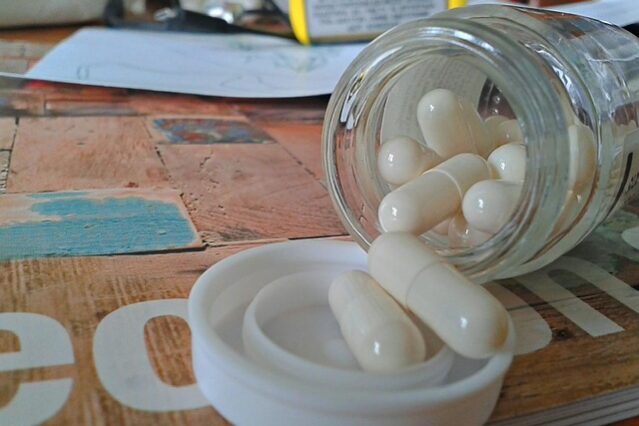Possible risks or harms of taking probiotics and prebiotics
Introduction: microbiota, probiotics and prebiotics
- The gut microbiota (or gastrointestinal microbiome) is a complex ecosystem, with significant individual variability. The effects of supplementing with foreign strains or selectively stimulating it can depend strongly on each individual’s initial state. ( Frontiers )
- Probiotics are live microorganisms (bacteria, sometimes yeast) that are intended to provide health benefits (e.g., to support intestinal balance). ( NCCIH )
- Prebiotics are substrates (usually non-digestible fibers or fermentable carbohydrates) that “feed” beneficial bacteria in the gut . ( PMC )
Taking probiotics or prebiotics blindly , without knowing the status of your microbiota (or without diagnosing an imbalance), can carry risks or adverse effects in certain individuals. Below are the main arguments, supported by scientific literature.
Possible risks or harms of taking probiotics without prior diagnosis
- Alterations (or “destabilization”) of the existing microbiota
- Probiotics can compete with pre-existing bacteria, produce metabolites (acids, antimicrobials), or modulate intestinal immunity, which can lead to changes in microbiome composition (even adverse ones) if they are not “well-matched” to the existing ecosystem. ( PMC )
- In certain scenarios, introducing “foreign” strains could lead to dysbiosis, or temporary imbalance, especially if those strains proliferate more than expected or interact poorly with native strains. ( PMC )
- Minor (short-term) gastrointestinal effects
- It’s common for probiotics to cause initial digestive discomfort: gas, bloating, mild diarrhea, and changes in bowel movements. ( WebMD )
- In some people with sensitivity to fermentation, probiotic strains may cause excess gas or intestinal pressure while the microbiome “adjusts.” ( PMC )
- Risk in immunocompromised people
- In patients with severely weakened immune systems (e.g., those undergoing cancer treatment, transplants, or serious illness), rare cases of bacteremia, fungemia, or infections have been reported with the use of probiotics. ( NCCIH )
- Although these events are rare, they warrant consultation with a specialist before using probiotics in vulnerable situations. ( NCCIH )
- Relationship with SIBO or worsening digestive symptoms
One of the most discussed risks of taking probiotics (or prebiotics) without a prior diagnosis is their possible link to SIBO or the worsening of related symptoms:
- One study found that recent probiotic use was independently associated with a positive methane breath test (to detect SIBO). ( Lippincott )
- The American College of Gastroenterology notes that some experts believe probiotics may worsen SIBO in certain cases. ( Healthline )
- In a review of SIBO, it is mentioned that probiotics may cause symptoms in SIBO patients, such as gas, bloating, and brain fogginess. ( Cureus )
- There isn’t enough clear evidence that probiotics are helpful for treating SIBO in all cases; there may even be a risk of worsening bacterial overgrowth in the small intestine. ( University of Michigan Medicine )
- The same review of “Emerging Issues in Probiotic Safety” notes that while microbiome profiling isn’t necessarily a formal requirement, caution should be exercised regarding unexpected adverse effects in individuals with particular microbiomes. ( PMC )
Bottom line: Introducing additional strains without knowing whether bacterial overgrowth is already present can worsen the condition.
Risks and particularities of prebiotics
Although prebiotics are often considered “safer” (because they are fermentable fibers), they also have their risks when taken without diagnosis:
- In people with SIBO or intolerance to certain fermentable carbohydrates (FODMAPs), prebiotics may aggravate gas, bloating, abdominal pain, or diarrhea. ( Columbia Surgery )
- The same Columbia Surgery website warns that prebiotics may worsen symptoms in those who already have SIBO or FODMAP sensitivity. ( Columbia Surgery )
- The article “The importance of food quality, gut motility, and microbiome in SIBO” suggests that prebiotics (such as fermentables) can accelerate fermentation in the gut, which can be counterproductive in cases of overgrowth. ( ScienceDirect )
Therefore, supplementing with prebiotics without knowing the functional status of the intestine can trigger or worsen digestive symptoms in predisposed individuals.
Limitations of microbiota tests and their implications
It’s worth keeping in mind that, while it might seem logical to “test first,” microbiota tests have limitations and don’t always provide definitive answers:
- A recent study has shown that different companies analyzing the same stool sample can produce widely divergent results, with notable variations in the quantification of key bacteria, diversity, and recommendations. ( Le Monde.fr )
- Many microbiota tests are not well standardized as clinical tools, and their interpretation (what constitutes a “healthy” microbiota) remains a matter of debate in the scientific community. ( Houston Methodist )
- A methodological review suggests that many stool-based microbiome studies suffer from bias or statistical overinterpretation. ( arXiv )
Therefore, although it can be useful to have information about your microbiota, not all tests are equally reliable in guiding therapeutic decisions.
Recommendations and conclusions
- Don’t use probiotics or prebiotics “haphazardly .” Given the degree of individual variability in gut microbiota, it’s ideal to have a functional diagnosis (e.g., breath tests, clinical analysis) before supplementing.
- Prioritize an individualized clinical approach . A gastroenterologist, clinical nutritionist, or functional medicine professional can help you choose appropriate strains or doses (if necessary), or even help you decide not to use them.
- Monitor effects and discontinue if symptoms worsen . If gas, bloating, abdominal distension, or worsening of digestive symptoms occur when starting a probiotic or prebiotic, it’s a good idea to consider discontinuing the probiotic and investigate possible overgrowth.
- In cases of suspected SIBO, extreme caution is advised . Introducing microbial strains into an already overgrown small intestine can exacerbate the condition.
- Diet, lifestyle, and intestinal transit are fundamental pillars . Improving intestinal motility and reducing factors that promote dysbiosis (such as low-fiber diets, stress, and prolonged antibiotic use) may be safer and more effective than blind supplementation.
Date 10/13/25
Photo: Pixabay
Note: The Nutrigenomics Institute is not responsible for the opinions expressed in this article.






